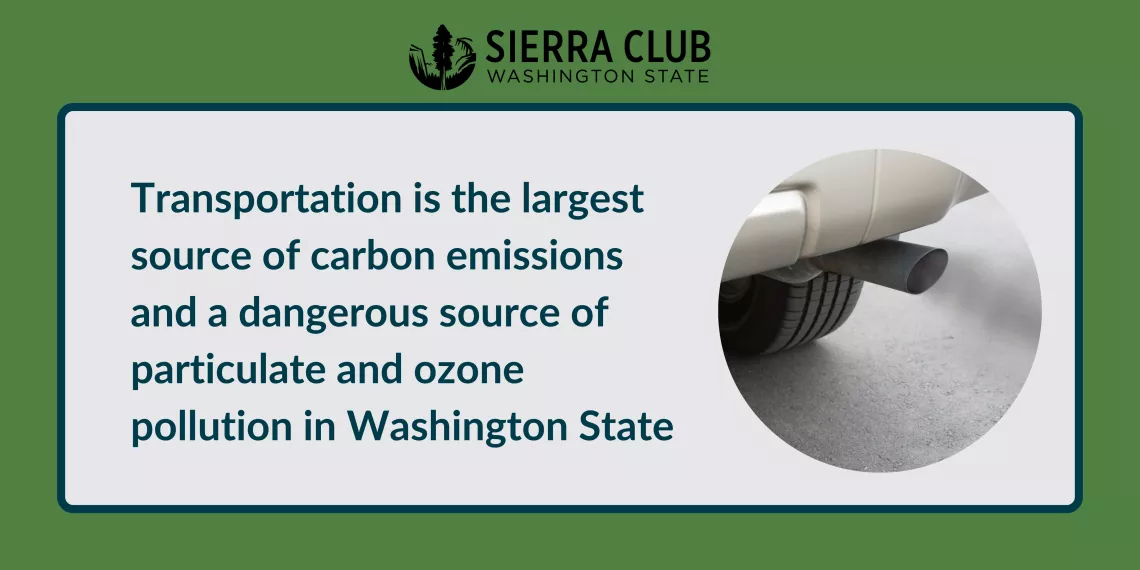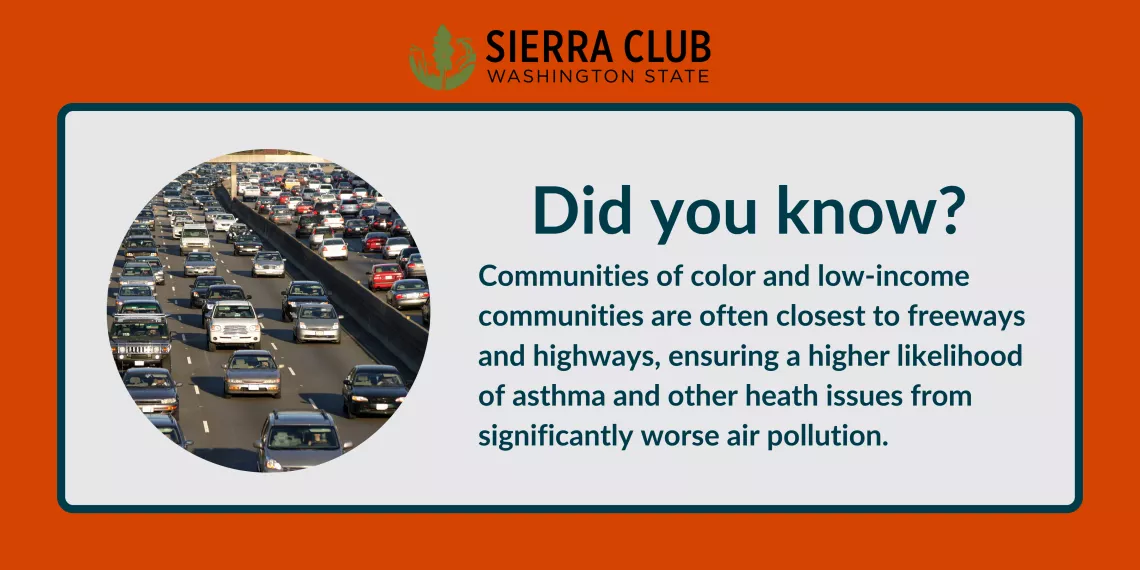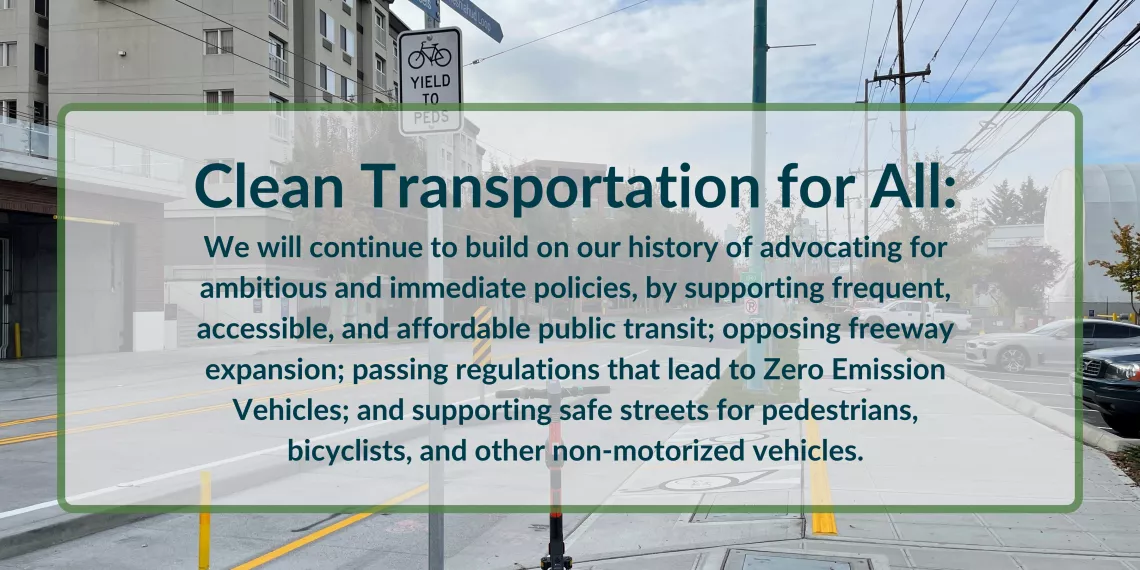
As part of our mission “to explore, enjoy, and protect the wild places of the earth” and “to practice and promote the responsible use of the earth's ecosystems and resources”, the Sierra Club has increasingly focused on our built environment - the human-made space in which people live, work, and recreate on a day-to-day basis.
As a key aspect of our built environment, transportation is the largest source of carbon emissions and a dangerous source of particulate and ozone pollution in Washington State. Due to underinvestment in clean alternatives, most commuters in our state rely on cars to get around. Combined with outdated land use regulations that lead to housing sprawl, our communities continue to grow horizontally - lengthening our commutes, and forcing us into longer trips for basic necessities, and exacerbating a pandemic of loneliness.
Car-dependency pollutes both the air we breathe and the ecosystems we rely on to survive. Worse yet, communities of color and low-income communities are often closest to major roads such as freeways and highways, ensuring higher likelihood of asthma and other health issues from significantly worse air pollution.
Not everyone can afford a car, and inequitable access to frequent and reliable public transportation creates food deserts, and makes it harder for folks to get higher paying jobs, better healthcare, and more.
Did you know? "Commuting time has emerged as the single strongest factor in the odds of escaping poverty. The longer an average commute in a given county, the worse the chances of low-income families there moving up the ladder." Communities of color often receive inadequate investment in pedestrian, bicycle, and transit infrastructure, creating a financial death trap for folks of color who have been pushed out of cities.

Further, our car dependency makes our streets more dangerous for pedestrians, bicyclists, and other non-carbon intensive modes of transportation. According to the Seattle Department of Transportation there are more than “10,000 [car] crashes a year, resulting in an average of 20 people losing their lives and over 150 people seriously injured.” Speed kills, and we design the majority of our streets to move personal vehicles as quickly as possible. When we prioritize the movement of cars over the mobility of all people, we create streets that destroy the health and wellness of our communities and our planet.
What we build and how we build it is inextricably linked to our environment. That’s why the Washington State Chapter of the Sierra Club is focusing on transforming our cities’ infrastructure to prioritize protecting our environment, our health, and our most vulnerable.
To meet our climate and public health goals, we will continue to build on our history of advocating for ambitious and immediate policies to set us on a clear path to Clean Transportation for All, including:
- Supporting public transportation infrastructure and investments to move more people in fewer vehicles and ensure that transit services are frequent, accessible, and affordable.
- Opposing carbon-intensive freeway construction and expansion where possible.
- Passing legislation and regulations that lead to Zero Emission Vehicles through electrification of freight, fleets, and personal vehicles.
- Supporting multimodal transportation investments such as Vision Zero to make it easier and safer for pedestrians, bicyclists, and other non-motorized vehicles.
We cannot mitigate the climate crisis without addressing car dependency and fundamentally altering the ways we get around. Together we can work towards a cleaner, more sustainable, and more equitable transportation system.
